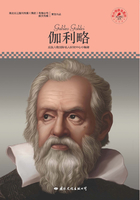Therefore those who believe, that they speak or keep silence or act in any way from the free decision of their mind, do but dream with their eyes open.
III. The activities of the mind arise solely from adequate ideas; the passive states of the mind depend solely on inadequate ideas.
Proof--The first element, which constitutes the essence of the mind, is nothing else but the idea of the actually existent body (II. xi. and xiii.), which (II. xv.) is compounded of many other ideas, whereof some are adequate and some inadequate (II. xxix. Cor., II. xxxviii. Cor.). Whatsoever therefore follows from the nature of mind, and has mind for its proximate cause, through which it must be understood, must necessarily follow either from an adequate or from an inadequate idea. But in so far as the mind (III. i.) has inadequate ideas, it is necessarily passive: wherefore the activities of the mind follow solely from adequate ideas, and accordingly the mind is only passive in so far as it has inadequate ideas. Q.E.D.
*****Note--Thus we see, that passive states are not attributed to the mind, except in so far as it contains something involving negation, or in so far as it is regarded as a part of nature, which cannot be clearly and distinctly perceived through itself without other parts: I could thus show, that passive states are attributed to individual things in the same way that they are attributed to the mind, and that they cannot otherwise be perceived, but my purpose is solely to treat of the human mind.
IV. Nothing can be destroyed, except by a cause external to itself.
Proof--This proposition is self-evident, for the definition of anything affirms the essence of that thing, but does not negative it; in other words, it postulates the essence of the thing, but does not take it away. So long therefore as we regard only the thing itself, without taking into account external causes, we shall not be able to find in it anything which could destroy it. Q.E.D.
V. Things are naturally contrary, that is, cannot exist in the same object, in so far as one is capable of destroying the other.
Proof--If they could agree together or co-exist in the same object, there would then be in the said object something which could destroy it; but this, by the foregoing proposition, is absurd, therefore things, &c. Q.E.D.
VI. Everything, in so far as it is in itself, endeavours to persist in its own being.
Proof--Individual things are modes whereby the attributes of God are expressed in a given determinate manner (I. xxv.Cor.); that is, (I. xxxiv.), they are things which express in a given determinate manner the power of God, whereby God is and acts; now no thing contains in itself anything whereby it can be destroyed, or which can take away its existence (III. iv.); but contrariwise it is opposed to all that could take away its existence (III. v.). Therefore, in so far as it can, and in so far as it is in itself, it endeavours to persist in its own being. Q.E.D.
VII. The endeavour, wherewith everything endeavours to persist in its own being, is nothing else but the actual essence of the thing in question.
Proof--From the given essence of any thing certain consequences necessarily follow (I. xxxvi.), nor have things any power save such as necessarily follows from their nature as determined (I. xxix.); wherefore the power of any given thing, or the endeavour whereby, either alone or with other things, it acts, or endeavours to act, that is (III. vi.), the power or endeavour, wherewith it endeavours to persist in its own being, is nothing else but the given or actual essence of the thing in question. Q.E.D.
VIII. The endeavour, whereby a thing endeavours to persist in its own being, involves no finite time, but an indefinite time.
Proof--If it involved a limited time, which should determine the duration of the thing, it would then follow solely from that power whereby the thing exists, that the thing could not exist beyond the limits of that time, but that it must be destroyed; but this (III. iv.) is absurd. Wherefore the endeavour wherewith a thing exists involves no definite time; but, contrariwise, since (III. iv.) it will by the same power whereby it already exists always continue to exist, unless it be destroyed by some external cause, this endeavour involves an indefinite time.
IX. The mind, both in so far as it has clear and distinct ideas, and also in so far as it has confused ideas, endeavours to persist in its being for an indefinite period, and of this endeavour it is conscious.
Proof--The essence of the mind is constituted by adequate and inadequate ideas (III. iii.), therefore (III. vii.), both in so far as it possesses the former, and in so far as it possesses the latter, it endeavours to persist in its own being, and that for an indefinite time (III. viii.). Now as the mind (II. xxiii.) is necessarily conscious of itself through the ideas of the modifications of the body, the mind is therefore (III. vii.) conscious of its own endeavour.
*****Note--This endeavour, when referred solely to the mind, is called "will," when referred to the mind and body in conjunction it is called "appetite"; it is, in fact, nothing else but man's essence, from the nature of which necessarily follow all those results which tend to its preservation; and which man has thus been determined to perform.
Further, between appetite and desire there is no difference, except that the term desire is generally applied to men, in so far as they are conscious of their appetite, and may accordingly be thus defined:
"Desire is appetite with consciousness thereof." It is thus plain from what has been said, that in no case do we strive for, wish for, long for, or desire anything, because we deem it to be good, but on the other hand we deem a thing to be good, because we strive for it, wish for it, long for it, or desire it.
X. An idea, which excludes the existence of our body, cannot be postulated in our mind, but is contrary thereto.















